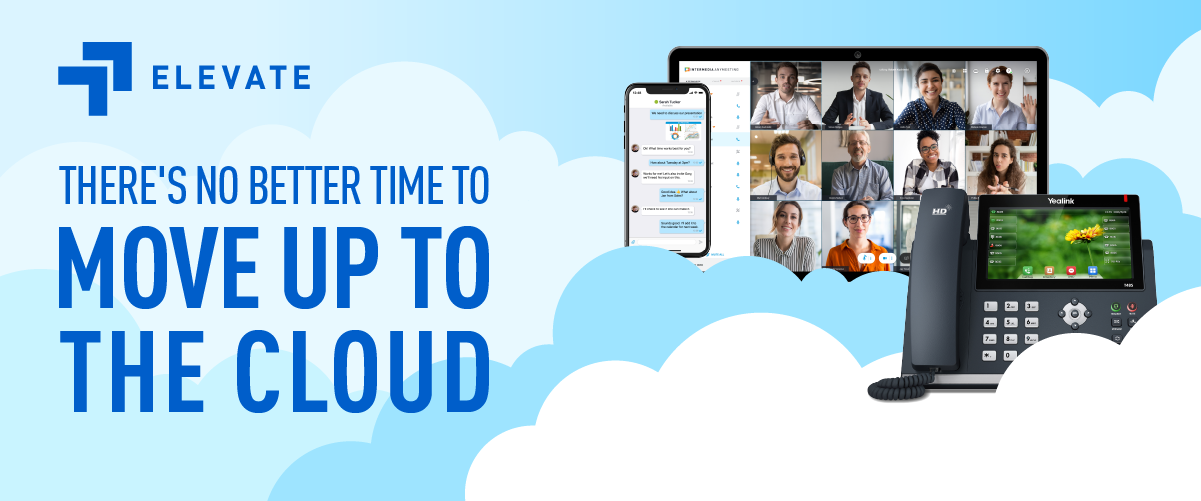Unified Communications and Cloud Migration

We’ve discussed the benefits of cloud migration in previous posts, as well as the considerations that you need to keep in mind before making the transition. Most businesses are familiar with the concept of migrating their email exchange servers and data backups to the cloud, but did you know that you can also migrate your unified communications to the cloud as well? Cloud-based phone systems fall under the same general umbrella of benefits and considerations that we talked about before, but there are some unique factors to keep in mind as well.
Versatility for remote workers is a leading reason companies are looking to migrate away from on-premises phone systems. Being able to eliminate a complicated infrastructure and off-load the maintenance of an on-premises phone system in favor of a more mobile and versatile communication network is very appealing for the growth of a more virtual workforce. There are many companies that rely heavily on their phone system for their day-to-day operations though, so taking the risk of losing that functionality due to downtime and lack of service redundancy is something that might have you thinking twice about the change.
The good news is that you are not alone. So many businesses today require consistent access to their phone systems. For example, if your company provides roadside assistance to your customers, then you can’t risk any downtime that could leave someone stranded by the side of the road in need of help. In scary movies it’s usually the driver’s cell phone signal that is keeping the call for help from going through not the call center’s network – but it’s a pretty hairy situation any way you slice it and you don’t want to be the villain in the end.
But fret not friends! Just as voice-over IP and mobile devices have essentially replaced the need for a traditional landline, cloud-based phone systems are becoming increasingly more commonplace and reliable. Today’s cloud providers have their own fail-safes in place to keep you up and running with limited to no downtime and many of them now operate multiple data centers and offer several redundancy options, so you don’t lose access or connectivity. In fact, migrating your phone system to the cloud could actually provide you with a more secure connection than the traditional setup.
Since your network will only be as fast as the internet traffic around you, it’s smart to have redundancies and contingencies of your own in place. Cloud-based phone systems can be paired with mobile devices for example. Forwarding incoming calls to user cell phones during an outage is one example of a contingency you could easily implement to keep your business from grinding to a halt.
With more employees coming back to work in the office versus working in a remote environment, bandwidth and latency issues might also be a concern you have with your current in-office network. One way to mitigate this is to establish a secondary path of connectivity. Things like SIP trunks or a dedicated copper line in addition to your cloud-based connection offer service redundancy so that you have more than one way to connect in case your primary path of connectivity experiences downtime, latency, or some other kind of failure. Having more than one way to access your systems and applications means that you and your users won’t find yourselves scrambling to keep the business moving if and when an issue rears its ugly head.
Business phone systems are experiencing a great deal of technological growth and with that growth comes a greater reliance on these resources and a greater reliance on their reliability. Be smart, think ahead and don’t put all your eggs in one basket. Make sure you have redundancies and contingencies in place to support your network – at both the provider level and with your own in-house infrastructure. Be twice prepared and never sorry.
To learn more about the benefits of cloud migration, and how the cloud can keep your unified communications running no matter what, contact the experts at TAG Solutions today!


